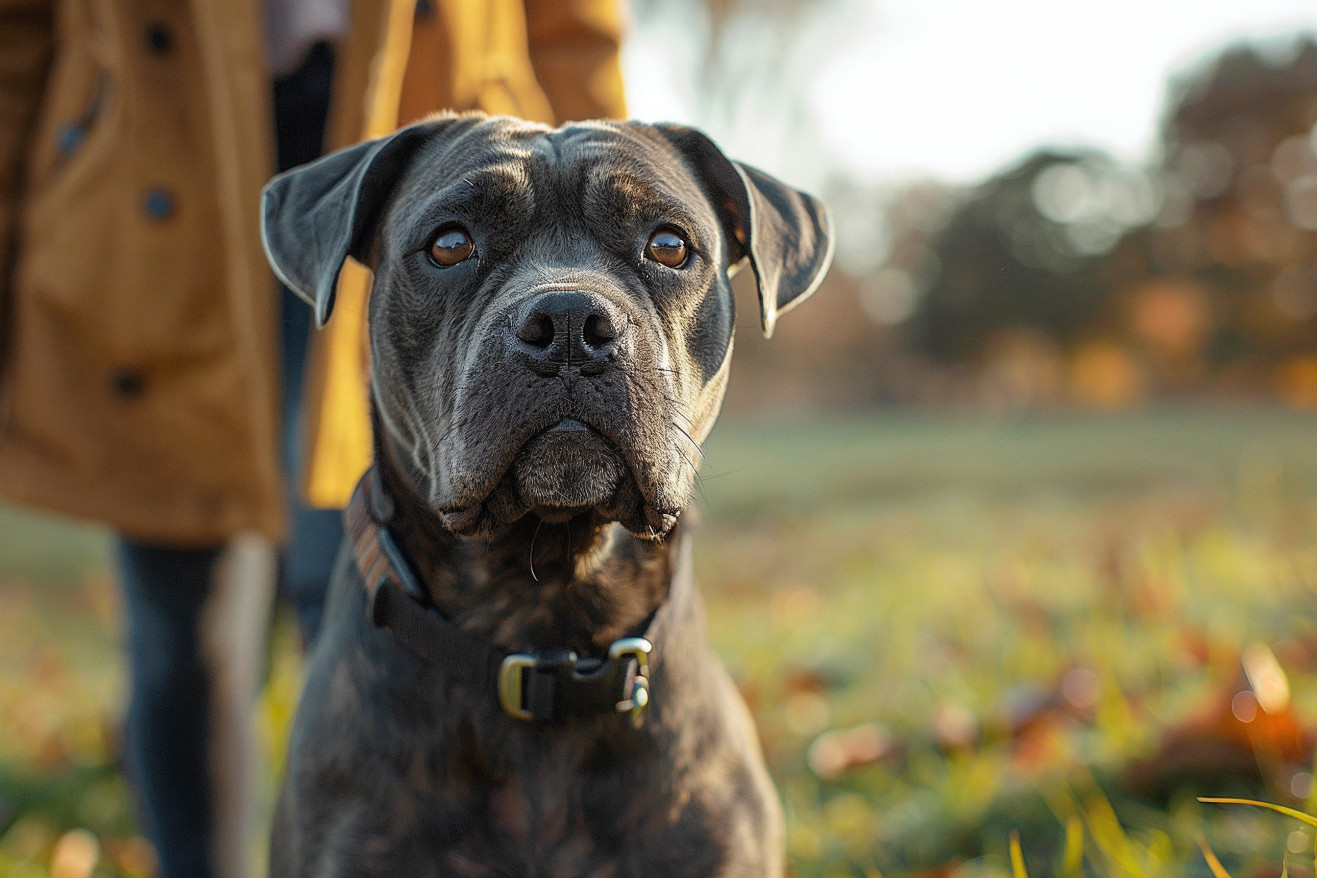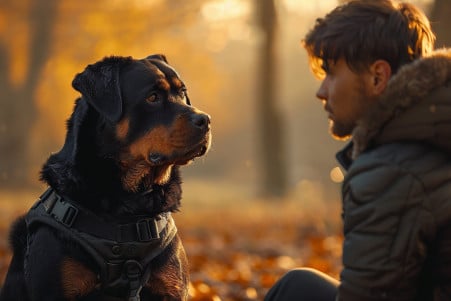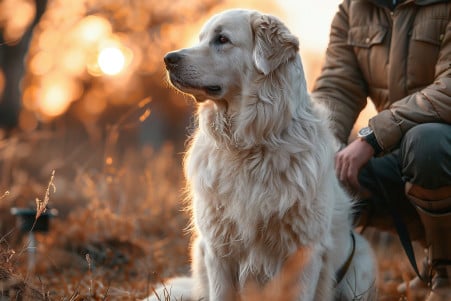Are Cane Corsos Aggressive? Unraveling the Complexities of Their Temperament
28 February 2024 • Updated 27 February 2024

Are Cane Corsos aggressive dogs, or is there more to their temperament than meets the eye? While Cane Corsos have strong protective instincts, they are not aggressive dogs. However, it is important for owners to make sure their dogs are trained and socialized properly and that they are responsible pet parents. If these things aren’t in place, the Cane Corso’s natural wariness of strangers can turn into aggression.
Our investigation combines insights from behavioral science, interviews with dog psychologists, and genetic studies to determine the truth about the Cane Corso’s temperament. What we found is a complex web of influences that impact the breed’s behavior, from their historical roots to the way they are trained today.
This in-depth analysis is designed to give you the information you need to understand the many layers of the Cane Corso’s temperament and how the age-old debate of nature versus nurture plays a role in their potential for aggression.
Are Cane Corsos aggressive?
Decoding Canine Aggression: Causes and Types
Aggression in dogs can take many forms, from growling and snapping to biting, and is often a result of the dog’s mental state and the situation they find themselves in. Dogs may exhibit aggression in a number of ways, including defensive, territorial, maternal, competitive, and fear-induced.
According to a review in the journal PMC, aggression can be caused by a number of factors, including behavioral, health-related, and genetic factors, and is not a characteristic that is specific to certain dog breeds.
A study published in Scientific Reports found that a dog’s aggression is impacted by demographic, environmental, and behavioral factors. For example, fearfulness was found to be a major factor that increased the likelihood of aggression, especially in dogs that were more fearful in general.
Meanwhile, environmental factors, such as a dog’s living situation, and demographic factors, such as a dog’s age and size, all contribute to a dog’s level of aggression.
A study from the University of Helsinki, cited by the American Kennel Club, highlights the importance of understanding these factors in order to prevent aggressive behavior. The study also points to the importance of socialization and training in reducing fearfulness and aggressive behavior.
By addressing the underlying causes, such as pain or illness, and ensuring that dogs are in a stable and stimulating environment, we can work to decrease the likelihood of aggression in dogs.
This is important to keep in mind when thinking about the Cane Corso’s temperament and working to dispel myths about the breed’s aggression.
Debunking the Myth: What Are Cane Corsos Really Like?
While their physical appearance and historical use as a guardian dog may suggest otherwise, Cane Corsos are often loyal and protective rather than aggressive. In fact, according to The Farmer’s Dog, these Italian mastiffs are known for their noble, intelligent, and affectionate nature, especially when they’ve been properly trained and socialized. Unfortunately, their protective nature is often mistaken for aggression, a misconception that’s perpetuated by stereotypes and irresponsible dog owners.
Cane Corsos’ history as descendants of the Molossian and their use as war dogs and farm dogs means that they’ve always needed to be strong and vigilant, and this has shaped their temperament, according to Britannica. This history has also had a direct impact on the breed’s reputation, which can lead to misunderstandings about the breed’s aggression.
Cane Corsos are loyal to their families and are good guard dogs, but their temperament is one of discernment rather than aggression, according to Red Rock Canyon Cane Corso. When you consider their tendency to be calm and relaxed at home and their tendency to bark only when necessary, it’s clear that the breed is often unfairly labeled as aggressive.
Knowing the history and temperament of the Cane Corso is important for understanding why the breed needs to be trained and socialized with a firm yet gentle hand, which will help ensure that they grow up to be a well-adjusted and non-aggressive pet.
How to Make Sure Your Cane Corso Is a Gentle Giant
Training and socialization are key to ensuring that a Cane Corso grows up to be a well-behaved dog and to minimize the risk of aggression. Longwood Veterinary Center explains that socialization should begin early in a dog’s life, ideally before they are four months old. Socialization is the process of introducing puppies to a wide range of positive experiences, which helps to prevent fear and anxiety—both of which can lead to aggression.
To properly socialize a Cane Corso, dogs should be exposed to a variety of people, animals, situations, and handling. True Care Veterinary Hospital notes that these experiences can have a big impact on a dog’s confidence and behavior, which can help prevent fear-based aggression.
If a Cane Corso isn’t properly socialized, they may develop behavioral problems that could lead to them being given up. ManyPets recommends that if you notice any signs of aggression, you should work with a professional dog trainer who can help you address the issue before it becomes a bigger problem. With the right training and socialization, Cane Corsos can be great pets.
It’s important to note that a Cane Corso’s temperament is a result of responsible breeding, training, and socialization. With the right care, Cane Corsos can be the loving, gentle dogs that their breed standard describes, rather than the aggressive dogs that people often assume they are due to their size.
Genetics and the Cane Corso’s Temperament
While the environment certainly plays a role in shaping a dog’s temperament, genetics also have a significant impact on a dog’s personality. According to Science News, certain behavioral traits, including trainability and aggression, are often shared by dogs of the same genetic line.
This was further confirmed by a 2023 study by a group of researchers that was published in the journal Proceedings of the Royal Society B, which found that 60 to 70 percent of the variation in dog behavior between breeds is due to genetics.
In the case of the Cane Corso, a breed that was originally bred for its protective nature, genetics likely played a large part in the development of the breed’s personality, especially since the dogs were also used as hunters.
However, as a study published in BMC Genomics points out, there is no single gene that determines a dog’s behavior. Instead, a dog’s behavior is the result of a complex interplay between genetics and the environment.
This means that while breeders may have selected for certain traits, such as fearlessness and protectiveness, in the Cane Corso, it’s the combination of genetics and the dog’s environment, including training and socialization, that has helped to shape the breed’s temperament.
This has allowed the breed to become the loving, loyal, and noble dog that it is today. As we continue to learn more about the genetics of dog behavior, it’s clear that the Cane Corso’s temperament is shaped by both genetics and the care it receives from its owners.
Understanding the Cane Corso’s Temperament
In this article, we’ve worked to get past the stereotypes to better understand the Cane Corso’s true temperament. We’ve learned that aggression is a learned behavior that can be influenced by a dog’s training, socialization, and genetics. The Cane Corso’s history as a guardian and hunter has contributed to their protective instincts, but their environment and training have also played a role in their behavior.
It’s important to own a Cane Corso responsibly. This means that owners need to commit to training and socializing their Cane Corso so that their protective instincts don’t turn into aggression. By accepting the breed’s natural tendencies and working with their temperament, owners can help their Cane Corso become a loving and well-behaved pet.
In conclusion, it’s important to remember that breed stereotypes are often not accurate. A dog’s temperament is a combination of their genetics and their environment. By dispelling myths and encouraging responsible ownership, we can not only help the Cane Corso but also work to change the way society views and treats all dogs.


